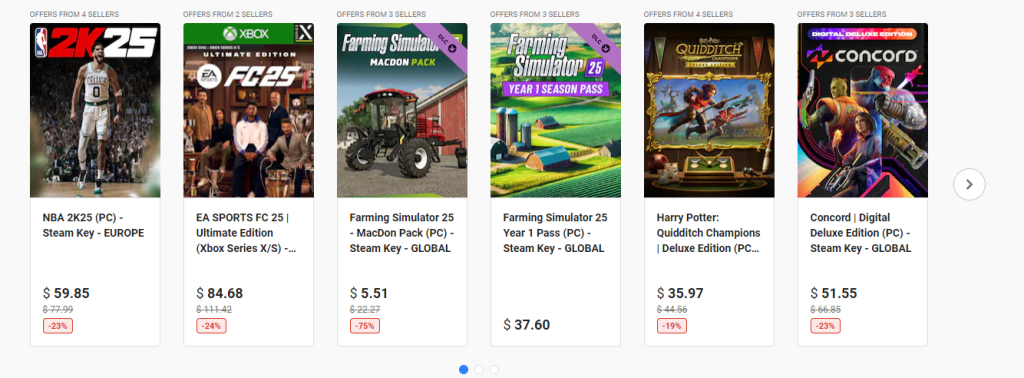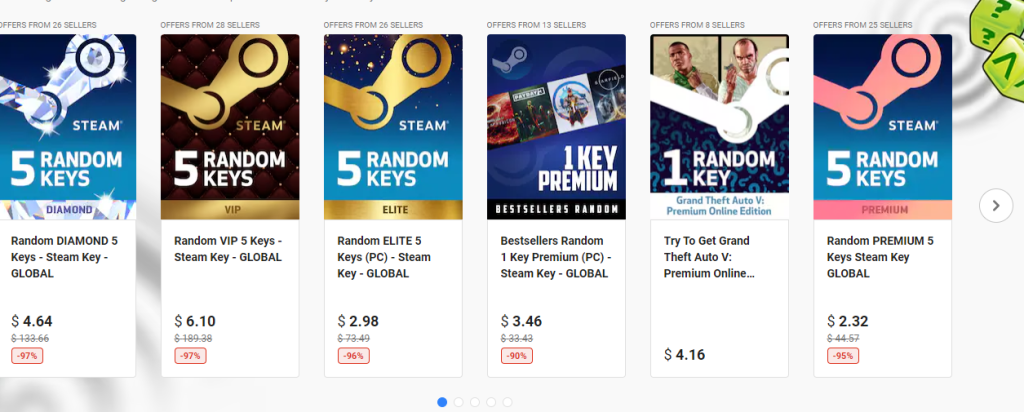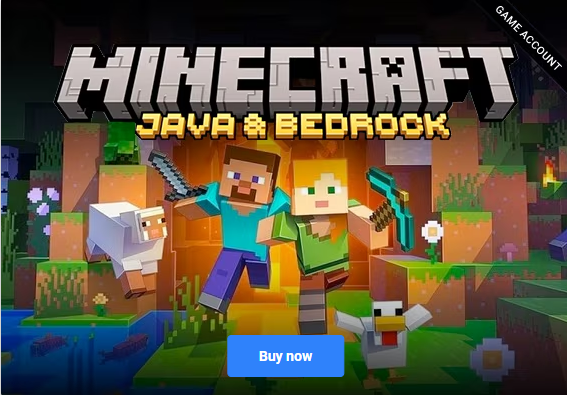In the ever-evolving digital economy, marketplaces that cater specifically to gamers and software enthusiasts have become integral to the industry. Among these, G2A.com stands out as one of the most recognized and, at times, controversial platforms. Established in 2010 in Poland, G2A has grown from a modest startup into a global powerhouse in the sale of video game keys, software licenses, in-game items, and other digital goods. This article delves into the intricate workings of G2A, examining what makes it unique, the challenges it has faced, and how it stacks up against competitors in a fiercely competitive market.
Understanding G2A.com: The Marketplace Model
G2A.com operates as an online marketplace, but unlike traditional e-commerce platforms that sell physical goods, G2A specializes exclusively in digital products. The platform serves as a bridge between buyers and sellers, enabling transactions that involve game keys, software licenses, and more. This model is akin to platforms like eBay, where the marketplace itself does not hold inventory but facilitates transactions between third-party sellers and buyers.
How G2A.com Operates
1. Sellers on G2A
Sellers on G2A can range from individual users to large-scale businesses. These sellers list digital products on the platform, setting their own prices. The variety of sellers results in a wide array of prices and availability, allowing consumers to find competitive deals. Sellers may obtain these keys through various means, such as bulk purchases, promotional giveaways, or even secondary markets. This model creates a highly competitive environment, often leading to lower prices for the end consumer.
2. Buyers on G2A
For buyers, G2A.com is an attractive option due to the potential for significant discounts on popular games and software. The process is straightforward: a buyer selects a product, makes a purchase, and receives a digital key. This key is then redeemed on platforms like Steam, Origin, or Uplay to activate the purchased game or software. G2A’s global reach means that buyers can access products from sellers worldwide, often finding deals that are unavailable in their local market.
3. Payment and Fees
G2A’s revenue model is multifaceted. The platform charges sellers a fee for listing products, a transaction fee on each sale, and also offers an optional service called G2A Shield, which provides additional buyer protection. G2A Pay, the platform’s proprietary payment system, supports multiple currencies and payment methods, making it easier for users across the globe to complete transactions.
What Sets G2A.com Apart?
G2A.com has managed to distinguish itself in several key areas, which have contributed to its success and popularity among gamers and software users worldwide.
1. Extensive Product Range
One of G2A’s strongest selling points is the sheer variety of digital products available on the platform. Unlike many of its competitors, which may focus solely on games, G2A offers a broader spectrum, including software licenses for programs like Microsoft Office, antivirus subscriptions, and even in-game items like skins and currency for popular titles such as “Counter-Strike: Global Offensive” and “Fortnite.” This extensive range appeals to a wide demographic, from casual gamers looking for discounts to professionals seeking affordable software solutions.
2. Aggressive Pricing
G2A’s marketplace model, which allows sellers to compete directly with one another, often results in some of the most competitive prices on the market. This aggressive pricing strategy has made G2A particularly appealing to consumers who are budget-conscious or looking for the best possible deal. The platform frequently features prices that undercut official stores like Steam, Origin, or the PlayStation Store by a significant margin, sometimes by as much as 50% or more. This price disparity is one of the main drivers behind G2A’s popularity.
3. Global Marketplace
G2A.com operates on a global scale, with a presence in virtually every major market. This international reach allows G2A to offer a diverse range of products tailored to different regional markets. For instance, gamers in regions with lower average incomes can find games at prices more aligned with their purchasing power, thanks to the global nature of the marketplace. This also means that G2A can offer products that might not be readily available in certain countries, further enhancing its appeal.
https://www.g2a.com/
4. Proprietary Payment System – G2A Pay
G2A Pay is a notable innovation introduced by G2A to streamline the payment process for its users. This payment gateway supports over 200 payment methods and multiple currencies, catering to G2A’s international customer base. G2A Pay isn’t limited to just G2A.com; it’s also used by other online businesses, enhancing its utility and reach. The integration of G2A Pay into the marketplace provides users with a secure and convenient way to handle transactions, reducing the friction often associated with international purchases.
5. G2A Shield: Buyer Protection
G2A Shield is an optional service that buyers can purchase to protect themselves in case something goes wrong with their transaction. For a small additional fee, G2A Shield offers guarantees such as refunds or replacements if the digital key received is faulty, does not work, or does not match the product description. While this service has been a subject of debate, it adds a layer of security that can be reassuring in a marketplace where the authenticity of products can sometimes be questionable.
The Controversies Surrounding G2A
Despite its success, G2A has been embroiled in several controversies, particularly concerning the legitimacy of the products sold on its platform and the impact of its business model on game developers.
1. The Issue of Fraudulent Keys
One of the most significant controversies surrounding G2A is the sale of unauthorized or fraudulent keys. Developers and publishers have accused G2A of allowing keys obtained through illegal means, such as stolen credit cards or exploitation of regional pricing differences, to be sold on its platform. When these fraudulently obtained keys are revoked by platforms like Steam or Uplay, consumers who purchased them from G2A are left with unusable products, leading to dissatisfaction and mistrust. This issue not only harms consumers but also results in financial losses for developers, who receive no revenue from these sales and may have to deal with chargebacks and other costs associated with fraud.

2. Impact on Developers and the Industry
The impact of G2A on developers, especially indie game developers, has been a point of contention. Indie developers, who rely heavily on direct sales to fund their projects, have argued that G2A’s marketplace model undermines their revenue streams. When game keys are sold on G2A at prices significantly lower than those set by developers, the latter receives no compensation, as the revenue goes to the third-party seller. This has led some developers to publicly criticize G2A, with a few even suggesting that consumers should pirate their games rather than buying them through unauthorized marketplaces, as they see it as less harmful.
3. G2A Shield Controversy
While G2A Shield is marketed as a buyer protection service, it has faced criticism for being a paid add-on rather than a default feature. Some users feel that by charging extra for protection, G2A is profiting from the potential insecurity of its marketplace. Critics argue that a marketplace should inherently provide security for its transactions without requiring additional payment. This has led to negative perceptions of the service, even though it provides tangible benefits for those who choose to use it.
4. Lack of Transparency
Another major criticism leveled against G2A is the perceived lack of transparency regarding the origins of the keys sold on its platform. Many consumers are unaware of where the keys come from or how they were obtained. While G2A has implemented measures to improve transparency, such as requiring more detailed information from sellers and introducing seller verification processes, these efforts have not fully alleviated concerns. The platform’s reputation continues to be clouded by the uncertainty surrounding the legitimacy of some of its products.
G2A’s Response and Evolution
In response to the numerous criticisms and challenges it has faced, G2A has taken steps to improve its platform, enhance transparency, and address the concerns of both consumers and developers.
1. Seller Verification and Security Measures
To combat the issue of fraudulent keys and improve the overall security of its marketplace, G2A has implemented stricter seller verification processes. Sellers are now required to provide more comprehensive documentation and information before they can list products on the platform. Additionally, G2A has introduced various security measures, including fraud detection algorithms and closer monitoring of transactions, to prevent the sale of unauthorized or illegally obtained keys.
2. Introduction of G2A Direct
In an effort to mend relationships with developers and publishers, G2A launched the G2A Direct program. This initiative allows developers to sell their products directly on G2A, giving them more control over pricing and distribution. Moreover, through G2A Direct, developers can earn a share of the revenue from keys sold on the platform, even if they are not the original sellers. This move was designed to address some of the financial concerns developers had about G2A’s impact on their sales.
https://www.g2a.com/

3. Enhanced Refund and Replacement Policies
Recognizing the importance of consumer trust, G2A has improved its refund and replacement policies. The platform has made it easier for buyers to get their money back or receive a replacement key if they encounter issues with a purchase. These enhanced policies are part of G2A’s broader effort to improve customer satisfaction and reduce the risks associated with buying digital products on the marketplace.
4. Collaboration with Developers
G2A has made efforts
to collaborate more closely with developers to ensure that the products sold on its platform are legitimate. This includes tracing the origins of keys when necessary and removing any listings that are found to be problematic. By working with developers, G2A aims to create a more trustworthy marketplace where consumers can shop with confidence.
G2A.com vs. Competitors: A Comparative Analysis
G2A operates in a competitive landscape, with several other platforms offering similar services. Understanding how G2A compares to its competitors is crucial for consumers who are navigating the digital goods market.
1. Green Man Gaming (GMG)
Green Man Gaming is an official retailer that works directly with game publishers and developers. This relationship ensures that all products sold on GMG are legitimate, giving consumers peace of mind. However, because GMG is an official retailer, its prices are often higher than those found on G2A. GMG also offers a loyalty program, which provides discounts and other benefits to repeat customers. While GMG is seen as a safer option, it may not appeal to consumers who are primarily looking for the lowest prices.
2. Humble Bundle
Humble Bundle operates on a different model than G2A, offering curated bundles of games at a pay-what-you-want price, with a portion of the proceeds going to charity. While Humble Bundle is highly regarded for its charitable contributions and high-quality selections, it does not offer the same variety or competitive pricing that G2A does. Humble Bundle is an excellent option for gamers who want to support good causes while expanding their game library, but it is less suitable for those looking for specific titles at the lowest possible prices.
3. Kinguin
Kinguin is perhaps the most similar platform to G2A, as it also operates as a marketplace for digital keys and other digital goods. Like G2A, Kinguin offers competitive pricing and a wide range of products. Kinguin also provides a buyer protection service similar to G2A Shield. However, Kinguin has faced similar criticisms regarding the legitimacy of the keys sold on its platform. The choice between G2A and Kinguin often comes down to personal preference, as both platforms offer comparable services and face similar challenges.
4. Official Platforms
Platforms like Steam, PlayStation Store, and the Microsoft Store offer the highest level of security and legitimacy, as they sell digital products directly from publishers and developers. However, these platforms often come with higher prices, and discounts are typically limited to seasonal sales or special promotions. For consumers who prioritize security and are willing to pay a premium for it, official platforms are the best option. However, for those looking to save money, G2A presents a more attractive alternative, albeit with certain risks.

The Future of G2A.com
The future of G2A.com will likely depend on its ability to navigate the challenges it faces while continuing to innovate and expand its offerings. As the digital goods market continues to grow, G2A will need to balance the demands of consumers for low prices with the need for greater transparency and ethical practices.
1. Enhancing Transparency and Trust
To improve its reputation, G2A will need to continue enhancing transparency on its platform. This could involve more rigorous verification processes for sellers, better communication with buyers about the origins of keys, and stricter enforcement of policies against fraudulent activity. Building trust with both consumers and developers will be key to G2A’s long-term success.
2. Expanding Product Offerings
As the digital economy evolves, G2A may look to expand its product offerings beyond games and software. This could include other types of digital content, such as e-books, digital art, or even virtual real estate in the growing metaverse. By diversifying its catalog, G2A can attract a broader audience and reduce its reliance on any single product category.
https://www.g2a.com/

3. Strengthening Relationships with Developers
Strengthening relationships with developers will be crucial for G2A as it seeks to address the criticisms of its business model. By offering developers more control over their products and ensuring they receive fair compensation, G2A can create a more sustainable marketplace that benefits all stakeholders.
4. Navigating Regulatory Challenges
As governments around the world become more involved in regulating the digital economy, G2A may face new legal and regulatory challenges. This could include stricter regulations on the sale of digital goods, increased scrutiny of marketplaces that facilitate third-party sales, and new laws aimed at protecting consumers and developers. G2A will need to stay ahead of these developments to avoid potential legal issues and ensure its business model remains viable.
G2A.com has established itself as a major player in the digital goods marketplace, offering a wide range of products at competitive prices. However, its success has been marred by controversies over the sale of unauthorized keys, its impact on developers, and issues with transparency. Despite these challenges, G2A has shown a willingness to evolve, implementing measures to improve security, enhance transparency, and build better relationships with developers.
As the digital marketplace landscape continues to shift, G2A’s future will depend on its ability to balance consumer demands with ethical business practices. If it can successfully navigate these challenges, G2A has the potential to maintain its position as a leader in the digital goods market, providing value to both consumers and developers in the years to come.
















Discussion about this post